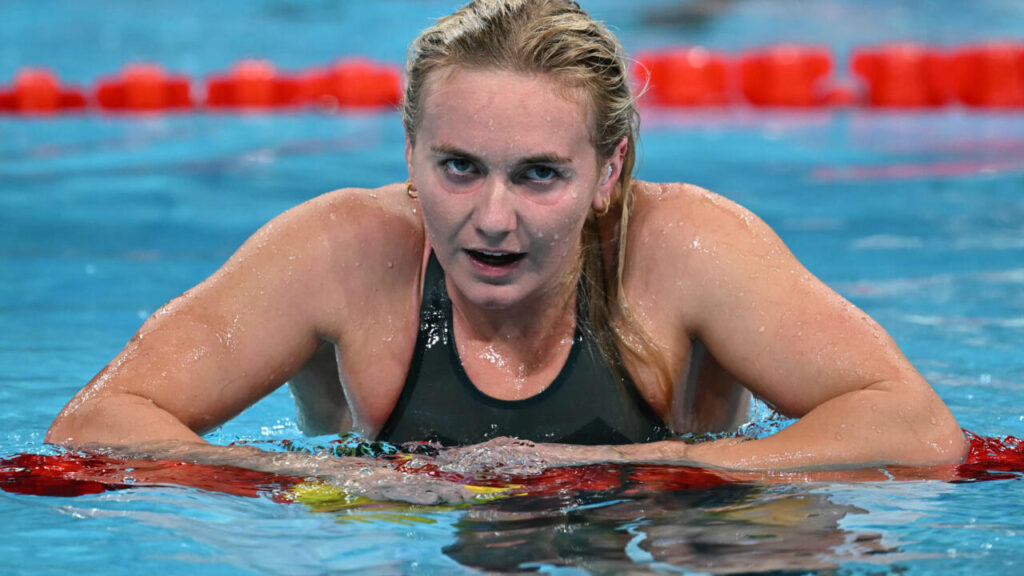Ariarne Titmus, a four-time Olympic gold medallist, has announced her retirement from competitive swimming at the age of 25. The Australian swimmer, renowned for her dominance in distance freestyle events, revealed that the decision followed a health scare before the Paris Olympics, where she had to undergo surgery to remove benign tumours from her ovary. Titmus described the experience as a “turning point” that led her to re-evaluate her priorities, with a renewed focus on her personal life and future beyond swimming.
Titmus’ remarkable career has cemented her place among the greatest swimmers of all time. She leaves the sport as the current 200m freestyle world record-holder, having won 33 international medals, including eight Olympic medals — four gold, three silver, and one bronze. Her achievements include making history in the 2024 Paris Olympics, where she won a third individual Olympic gold, securing back-to-back wins in the 400m freestyle, a feat not seen since Dawn Fraser’s success in 1964.
Her rivalry with American swimmer Katie Ledecky, particularly during the 2020 Tokyo Olympics, was a defining moment of her career. Titmus edged out Ledecky in the 400m freestyle, a victory that she called her greatest achievement. She credited Ledecky for pushing her to reach her full potential, describing their competition as a blessing that helped shape her into the athlete she became.
Despite her decision to step away from the sport, Titmus remains optimistic about her future. She expressed excitement for what lies ahead, including pursuing opportunities in broadcasting and public speaking, as well as mentoring young swimmers, especially those from regional areas. Titmus, who was recently named Tasmania’s 2025 Young Australian of the Year, looks forward to giving back to the swimming community.
Her retirement marks the end of an era for Australian swimming, but Titmus’ legacy will continue to inspire future generations of swimmers. With her decision to prioritize health and personal goals, she sets a powerful example of how athletes can redefine success beyond their sport

